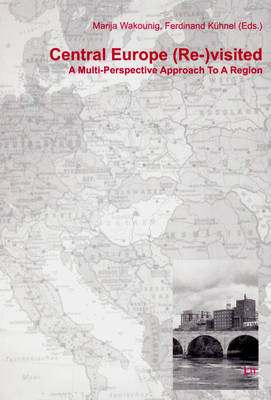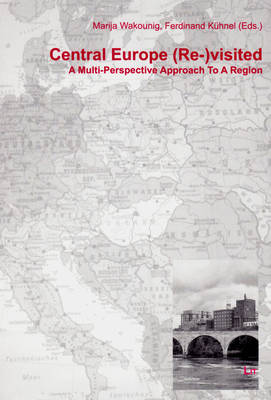
- Retrait gratuit dans votre magasin Club
- 7.000.000 titres dans notre catalogue
- Payer en toute sécurité
- Toujours un magasin près de chez vous
- Retrait gratuit dans votre magasin Club
- 7.000.0000 titres dans notre catalogue
- Payer en toute sécurité
- Toujours un magasin près de chez vous
Central Europe (Re-)visited
A Multi-Perspective Approach To A Region
29,45 €
+ 58 points
Description
During the 1970s the Austrian Federal Ministry of Science, Research and Economy supported the founding of the Center for Austrian Studies at the University of Minnesota in Minneapolis and the Austrian Chair at Stanford University in California. These foundings were the initial incentives for the world wide 'spreading' of similar institutions; currently eight Centers for Austrian and Central European Studies exist in seven states on three continents. The financial funding of the Ministry enabled these, to connect senior with young scholars, to help the latter, to participate and benefit from the scientific connection of the former, as the Austrian say 'to sniff the scientific air'. A major reason for the founding of these Centers was the need of the Ministry, to conduct research abroad and to get in touch with the respective national scientific community, to avoid prejudices, and to spread a better understandig and knowledge about Austria and Central Europe.
This volume contains the annual reports (2014/2015) of the Center Director's and the presented papers of the PhDs, which deal with/discuss various topics on Central European History in Modern Times.
The Centers for Austrian and Central European Studies, founded by the Austrian Federal Ministry of Sciences, Research and Economy since the 1970s play an important role for the Austrian and international scientific community. Their tasks are to promote studies on Austrian and Central Europe in their host nations as well as to offer Austrian and Central European students the opportunity to conduct research abroad and to get in touch with the local scientific community. This anthology contains reports on the activities of the Centers in the Academic Year 2014/2015 and papers of their most promising PhD-students.
This volume contains the annual reports (2014/2015) of the Center Director's and the presented papers of the PhDs, which deal with/discuss various topics on Central European History in Modern Times.
The Centers for Austrian and Central European Studies, founded by the Austrian Federal Ministry of Sciences, Research and Economy since the 1970s play an important role for the Austrian and international scientific community. Their tasks are to promote studies on Austrian and Central Europe in their host nations as well as to offer Austrian and Central European students the opportunity to conduct research abroad and to get in touch with the local scientific community. This anthology contains reports on the activities of the Centers in the Academic Year 2014/2015 and papers of their most promising PhD-students.
Spécifications
Parties prenantes
- Editeur:
Contenu
- Nombre de pages :
- 328
- Langue:
- Anglais
- Collection :
- Tome:
- n° 17
Caractéristiques
- EAN:
- 9783643907387
- Format:
- Livre broché
- Dimensions :
- 162 mm x 236 mm
- Poids :
- 538 g

Les avis
Nous publions uniquement les avis qui respectent les conditions requises. Consultez nos conditions pour les avis.





